#civic mythology
Explore tagged Tumblr posts
Text

Jupiter and Europa, Annibale, Agostino and Ludovico Carracci, 16th century
#jupiter#europa#annibale carracci#agostino carracci#ludovico carracci#16th century#palazzo fava#medieval civic museum bologna#art history#art#aesthethic#italian art#painting#rinascimento#greek mythology#ancient greece
13 notes
·
View notes
Text
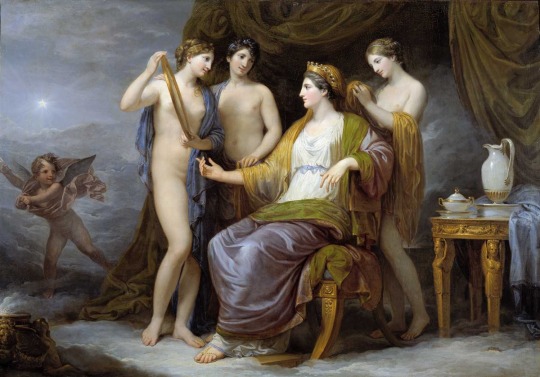
Juno Dressed by the Graces by Andrea Appiani, (1811), oil on canvas, 100 × 142 cm, Civic Museum of Brescia, Brescia, Italy
#juno dressed by the three graces#andrea appiani#painting#art#fine art#Civic Museum of Brescia#brescia#italy#mythology#my upload
23 notes
·
View notes
Text






JOHN COLLIER - LADY GODIVA, 1898
The artwork portrays the iconic character of Lady Godiva, the 11th-century aristocrat renowned for her rebellion against her husband's harsh tax burdens on the people of Coventry. As per legend, she galloped unclothed through the streets of Coventry, shielded only by her flowing hair, to obtain a reduction of the severe taxes. Her bravery and empathy have established her as a lasting emblem of civic integrity and social equity.
In the artwork, Godiva is depicted in profile; looking to the left. The horse is white adorned with red decorations, featuring an embroidered red fabric that covers its body, leaving only its head, neck, and front leg exposed. In the background and to the right of Lady Godiva, Norman architecture is visible. In this piece, Collier portrays her as a young, timid, delicate woman perched on her horse (the only known Godiva painting to show her sitting this way).
During the period when the painting was made, Collier was experiencing notable personal and career transitions. His first wife, Marian Huxley, passed away in 1887, prompting him to wed her sister Ethel in 1889, a marriage that faced legal complications because the Deceased Wife's Sister's Marriage Act wasn't enacted until 1907. In his career, he was making a name for himself as a notable portrait artist and was earning acclaim for his historical and mythological subjects, such as this artwork.
Though the artwork was praised for its aesthetic appeal and vibrant hues, the depiction of nudity ignited debate during the conservative Victorian period. As time progressed, it evolved into an important element of Coventry's cultural legacy, embodying both the tale of Lady Godiva and the ethical intricacies of its era. Today, it is recognized as one of Collier's most important works, housed in the Herbert Art Gallery and Museum.
123 notes
·
View notes
Text
Asteroid Vesta in your Astrological Chart. Where are you Dedicated?
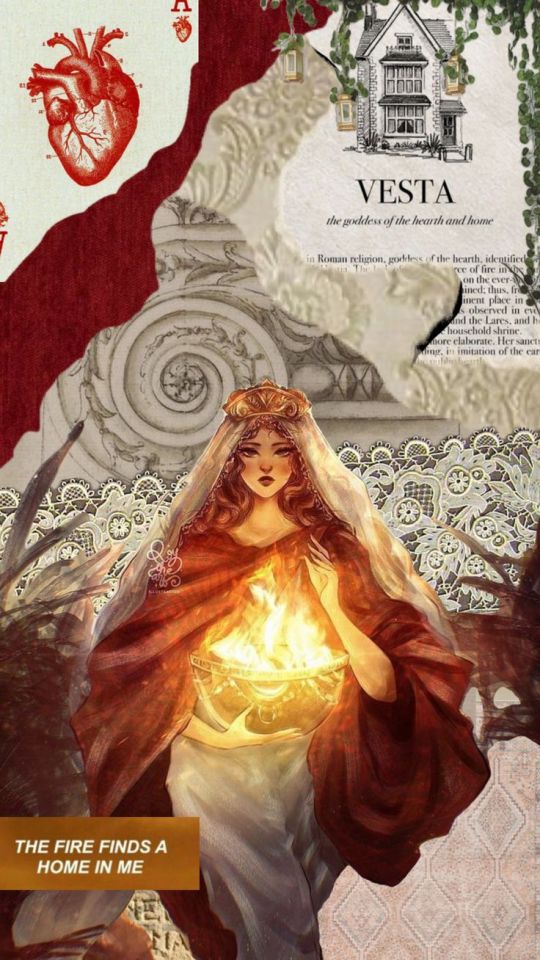
In Mythology,Vesta is the Roman goddess of hearth, home, and family. Her Greek counterpart is Hestia. Vesta's domain includes the fire at the center of the household and the community, symbolizing warmth, safety, and continuity. Her worship was fundamental to both private homes and the state.
If You Liked This Reading Sign up to TheObsidianPages777 Newsletter
+Free E-Guides on New Moon Manifestation and Gem Stone for Life Path
In Roman mythology, Vesta is a virgin goddess, embodying purity and the sanctity of domestic life. The Vestal Virgins, her priestesses, maintained the sacred flame in her temple in Rome, ensuring it never extinguished. This flame represented the heart of Rome itself, and its continuous burning was believed to guarantee the city's eternal life.
Vesta's festivals, like the Vestalia in June, involved rituals that underscored her role in protecting the home and ensuring communal harmony. Her influence extended to everyday Roman life, emphasizing the importance of the hearth as the center of family and civic stability.
In astrology, Vesta is an asteroid associated with themes of dedication, service, sacred space, and focused commitment. It represents where we invest our energy and devotion, as well as areas of life that hold sacred importance to us. When interpreting Vesta's placement in the natal chart by house, it indicates the area of life where these themes are most prominent.
Vesta in the 1st House
Focus: Personal identity, self-expression, and physical appearance.
Themes: Dedication to self-development, personal integrity, and maintaining a strong sense of identity. You might be seen as devoted to self-improvement and personal goals.
Vesta in the 2nd House
Focus: Finances, personal resources, and values.
Themes: Commitment to building financial security and valuing material possessions. You might find a sacredness in your personal values and be dedicated to preserving and enhancing your resources.
Vesta in the 3rd House
Focus: Communication, learning, and immediate environment.
Themes: Devotion to acquiring knowledge and sharing information. You might be dedicated to your siblings, neighbors, or local community, finding importance in staying informed and connected.
Vesta in the 4th House
Focus: Home, family, and roots.
Themes: A strong commitment to family and creating a sacred space at home. You might be dedicated to your family’s wellbeing and have a deep connection to your ancestry and heritage.
Vesta in the 5th House
Focus: Creativity, romance, and children.
Themes: Dedication to creative pursuits, hobbies, and self-expression. You may be deeply invested in romantic relationships or feel a sense of sacredness in your role as a parent or mentor.
Vesta in the 6th House
Focus: Work, health, and daily routines.
Themes: A strong commitment to your work, health, and service. You might find a sense of purpose in your daily routines and be dedicated to maintaining good health and being of service to others.
Vesta in the 7th House
Focus: Partnerships, marriage, and one-on-one relationships.
Themes: Dedication to partnerships and maintaining harmonious relationships. You might place great importance on your marriage or close relationships, seeing them as sacred commitments.
Vesta in the 8th House
Focus: Shared resources, transformation, and intimacy.
Themes: Deep commitment to transformative experiences and shared resources. You might find sacredness in intimate connections and be dedicated to understanding deeper psychological or mystical truths.
Vesta in the 9th House
Focus: Higher education, philosophy, and long-distance travel.
Themes: Devotion to higher learning, spiritual pursuits, and expanding your horizons. You might be dedicated to exploring different cultures, philosophies, or religious beliefs.
Vesta in the 10th House
Focus: Career, public life, and reputation.
Themes: A strong commitment to your career and public standing. You might find a sense of purpose in your professional achievements and be dedicated to attaining your goals and ambitions.
Vesta in the 11th House
Focus: Friends, groups, and social causes.
Themes: Dedication to friendships, group activities, and social causes. You might be deeply invested in your social networks and find sacredness in collective endeavors and humanitarian efforts.
Vesta in the 12th House
Focus: Spirituality, solitude, and the unconscious.
Themes: Commitment to spiritual growth and inner work. You might find solace and purpose in solitude, meditation, and exploring the subconscious mind, dedicating yourself to understanding and healing hidden aspects of your psyche.
Understanding Vesta’s placement in your natal chart can offer insights into where you feel a sense of duty and sacred dedication in your life, guiding you towards areas that hold profound meaning and significance.
Celebrity Examples:
1. Oprah Winfrey – Vesta in the 10th House
Focus: Career and public life.
Themes: Oprah is renowned for her commitment to her career and her influence in the media. Her dedication to empowering others through her platform and maintaining a strong public presence aligns with Vesta’s influence in the 10th house.
2. Albert Einstein – Vesta in the 9th House
Focus: Higher education, philosophy, and long-distance travel.
Themes: Einstein’s dedication to higher learning and the pursuit of knowledge in the field of theoretical physics reflects Vesta’s themes in the 9th house. His work transformed our understanding of the universe, showing a deep commitment to intellectual exploration.
3. Princess Diana – Vesta in the 7th House
Focus: Partnerships and marriage.
Themes: Princess Diana's life was marked by her dedication to her roles in her marriage and her public relationships. Her commitment to humanitarian causes and her efforts to maintain personal relationships are indicative of Vesta’s influence in the 7th house.
4. Steve Jobs – Vesta in the 6th House
Focus: Work and daily routines.
Themes: Jobs’ dedication to his work at Apple and his meticulous attention to detail in his daily routines highlight Vesta’s presence in the 6th house. His commitment to innovation and excellence in his work is a hallmark of this placement.
5. Frida Kahlo – Vesta in the 5th House
Focus: Creativity and self-expression.
Themes: Frida Kahlo’s intense dedication to her art and self-expression aligns with Vesta in the 5th house. Her work often explored personal and emotional themes, reflecting a deep commitment to her creative process.
6. Nelson Mandela – Vesta in the 12th House
Focus: Spirituality and solitude.
Themes: Mandela’s long imprisonment and his profound inner strength and dedication to the fight against apartheid align with Vesta’s themes in the 12th house. His commitment to justice and his spiritual resilience were central to his life and legacy
If You Liked This Reading Sign up to TheObsidianPages777 Newsletter
+Free E-Guides on New Moon Manifestation and Gem Stone for Life Path
#greek gods#asteroid astrology#astrology readings#astrology#asteroid in love#astrology observations#vesta#vesta goddess#astrology community#astroblr#astro observations#astro notes#asteroid notes
182 notes
·
View notes
Note
so, i’m currently taking a west civics class in college, and i am currently researching ancient greek civilizations, most notably, the arts and culture of ancient greece. i know you have written a fic based on its mythological stories, with minotaur könig (bless your beautiful soul).
but through my readings, i couldn’t help but come up with such a dirty daydreams while in class. i couldn’t stop myself from thinking about könig and… the ancient olympics…
i know, realistically speaking, women were not allowed to attend or watch these games for the most part. so, in a universe where könig’s dedication not only falls upon him being a top man, but being the perfect man in honor of being recognized by the god of strength himself, he becomes so enticing in the way he trains and readies himself for such a significant event of his life. he’s never really had much to care for, neither does he need to prioritize anything that isn’t him or his training. he’s a workhorse, nothing stopping him from being the best, most valuable follower of zeus. that is… until…
well, it was your fault, and you admit that, but he wasn’t stopping you either. i mean, who could blame you, this little thing sneaking and peeping at a man who’s at work in order to provide to cute women like yourself. in fact, you argue that this was your way of appreciating a man, to observe them in their element in such a loving gaze. it didn’t help that könig was a man who preferred to train naked too, in all his glory, so of course there was no missing you, you were just too obvious for a man like him to notice you.
and with every grunt he’d give after each swing of a fist or a blade, a mew is what you’d give in return, your own form of a cheer for him to keep going. and you promised you didn’t mean to stare and make distracting noises, but an innocent maiden like yourself was just too hypnotized by this new anatomy that was found between this man’s legs. so outspoken, so dirty for your mouth to spew such beautiful filth to a stranger.
was this könig’s new test of endurance? part of the program to make him stronger for the olympic event that was just around the corner. he has heard man advising others to refrain from sex before the games, but he hadn’t even been given the chance to work on that since no one was bold enough to approach him like you did. he wonders, does fucking before a game really make a man weak, does thinking about shoving his big dumb cock in his soon-to-be wife distract him too much to succeed? perhaps, perhaps not, one thing he does know though, he’s got someone else to honor and worship, which makes his training all the more necessary.
Oh my god….. I’m totes not getting caught up in the fact that women were not allowed to participate in these activities….
This led me to think, what if some misbehaving little creature decided to peep at this Hercules reborn? She gets caught one day, but because she’s absolutely carefree and unhinged, she asks König if he could show her how to train.
CW: Nudity, implied sexism/misogyny (Ancient Greek society thang), teasing König to the point where he gets a boner and growls
Our Olympian hero gets so confused that he forgets he was supposed to report you or throw you out of the gym. Outside, where birds fly free and the sun tortures the trainees, he has picked a spot where he can train in solitude and silence: for some reason, other people’s stares make him uncomfortable… Until this curious, sweet little nymph came around, perched atop a wide rock, munching some wild mountain herb as she watched him train.
He allowed her to watch him train for two days, but on the third, he marched over to her and told her she needs to leave. Women are not allowed here, doesn’t she know that? Where are her parents? Does she have a husband?
No, no husband, and her parents don’t really care what she does. Well, this explains why she’s behaving this way. Running around the hillside so untame, watching men train—can’t she see she’s putting herself in danger? Any one of these men could decide to just take her on the barren land if she’s not careful.
She just giggles and asks, would he like to take her? Then points out that men shouldn’t waste their seed before a big competition. Also, Zeus’s wife would not think well of him if she saw him rut innocent women on the hill... There’s nothing but heaven above them, surely someone would see. The gods could curse him with a weak ankle, or a sprained muscle, a failing heart or a snake bite…
“All right, all right, that’s enough,” he says, but there’s even worse to come.
Next, she asks if he could show her how to lift those smaller rocks, how to throw a javelin or a discus. Could he teach her how to wrestle…?
“Absolutely not,” he scoffs while his groin floods with warmth at the thought of wrestling with this pretty, wonton woman. She’s absolutely disgraceful, and yet, he doubts she’s running from man to man, teasing them to death. She’s not begging to get raped, she’s just… a little gullible, or something. Happened to take interest in him, little thing. As she should, after all, he’s the pride of this city...
“You fear I’ll become better than you?” She asks with little stars in her stare.
“Bah. Don’t be ridiculous...”
They’re both smiling, now. This kind of banter and games he has never experienced with a lady, she’s making him extremely uncomfortable and at the same time, fly high like Icarus. He’ll have to be careful he doesn’t get burned…
When he still refuses to show her how to train, she shrugs and goes over to the wooden javelin that’s taller than her. Picking it up, he expects the gods to smite her down with a sudden hail or thunder, but nothing happens. The sun keeps on shining, and the sheep keep on baaing. She weighs it with two hands, then starts to look for a spot to try and throw it.
“Wait,” he calls after her, but she only looks back at him with a smile. Picks off to run, with the javelin securely in her right hand, she runs like a deer while he lumbers after her, completely perplexed.
Insufferable woman… He’s growing hard from the cock as he runs, somehow aroused by this silly chase. Like Apollo trying to court Daphne, but his Daphne is not meek and unwilling; she’s giggling as he huffs and runs after her like a stumbling giant.
At a distant field of nothing but rock and weather-beaten flowers, she stops. Shields her eyes as she looks for a perfect spot, she’s not even breathless when he finally catches her. She turns around to look at her hero, catching his breath in the sun.
“You’re not fit enough for a marathon,” she comments. “Did you lift too many weights?”
“Give me the javelin,” he pants, dismissing her blunt analysis of his weaknesses. Stepping towards her, he extends his hand, offering her a chance to return it to him without fuss.
“Wrestle it from me,” she smiles, so playfully and brightly that his cock suffers another throb.
Gods damn this woman... She’s toying, playing with him, teasing him to the point where he’s left no choice.
He doesn’t want to hurt her, which means the “wrestling” becomes an awkward battle of snickers and limbs. His cock gets in the way, and to an outsider, this might look like a scene of an oddly gentle, upcoming rape… This little minx is giving him such an ache in his head and his loins that he’s gritting his teeth by the time he gets his hands around the wooden spear. By then, she has her legs wrapped around his waist, her arms above her head as she’s lying on her back with him on top of her.
“I’m not letting go,” she laughs as they both hold the spear, his erection now blissfully trapped between her legs.
“Who sent you,” he grunts, head spinning as he tries to figure out which of the gods is trying to give him trouble this time.
“What do you mean…?”
“You’re here to thwart and tease me. Tell me who sent you, now.”
“You think I’m sent by some angry god?”
Her eyes sparkle even more, if possible. She even giggles under him and under the sun, her laugh like a thousand little bells in his ears.
“That’s so cute…!”
His grunts turn into a hollow, painful growl – even Tartaros is better than this.
“Train me, and I’ll let you have your silly javelin,” she smiles, even licking her lips before they purse together innocently.
But he knows she’s far from innocent. She has to be a curse of some sort, a plight sent here to torment him, because he finds himself sighing, “Alright…”
He gives her one condition: she has to wear clothes; no flaunting herself around him and especially not around the other men if they were to ever see her. They will both get flogged or worse if this mockery comes to daylight… She gives him a soft, adoring smile this time, and says of course, whatever he says.
The next day, she’s waiting for him at the training grounds, javelin in her hands…
Completely, utterly naked.
#könig x reader#könig x you#silliness#torturing könig#we all know how this will end so i don't have to write a full fic for it right ^^
274 notes
·
View notes
Text
For reference, this is the context. Please do your civic duty.
Also reblog! If you have mutuals who would be interested, it's nice to let them see it. The more, the merrier!
-Mod S
#desiblr#hindublr#mahabharata#ramayana#hinduism#indian mythology#india#mythology#hindu mythology#poll#tumblr polls#I'm tired#mod s is always tired#mod: s
54 notes
·
View notes
Text
There is just something about Vesta (4) & Hestia (46) prominent people in astrology (a theory)
By : Brielledoesastrology (tumblr)



⚠️before this post start i just wanted to say that all of this is a theory, so i could be wrong. These are just observations from what i've seen when i do famous people charts and i saw some repeating patterns about it. And not gonna lie this is probably one of the most confusing posts I've ever made cuz I still have no answer to this too, that's why i hope other people have answers about this too.⚠️
asteroid Vesta code number : 4
asteroid Hestia code number : 46
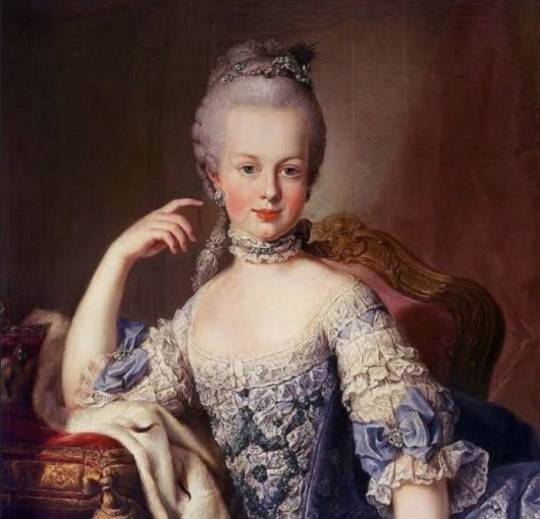
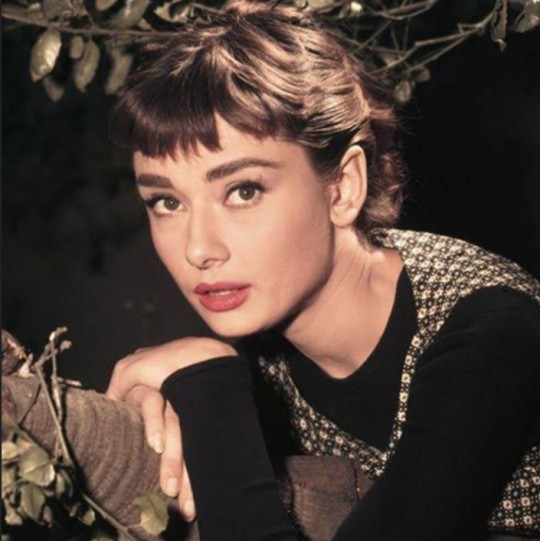
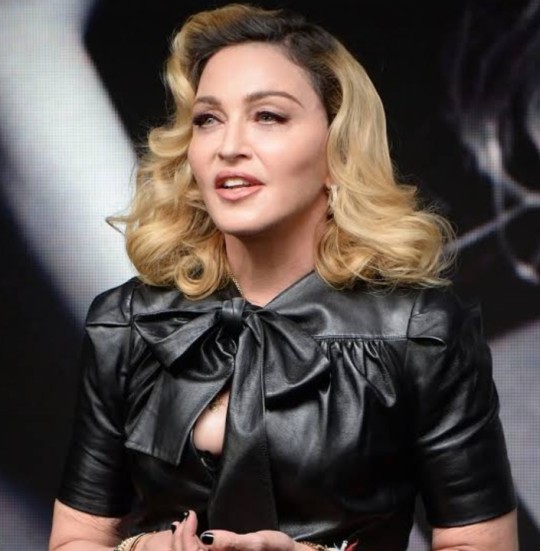




- Marie Antoinette has hestia conjunct her moon in aquarious in the 5th house
- Audrey Hepburn has vesta conjunct her mercury at taurus - gemini
- Madonna has hestia conjunct her midheaven in gemini
- Henry Cavil has hestia conjunct his venus and northnode in gemini
- Cillian Murphy has vesta conjunct his venus and mercury
- Marilyn Monroe has hestia conjunct her midheaven in taurus
- Pamela Anderson hestia conjunct her mercury in cancer and mercury also her chart ruler
Other people that i can't include in the pictures because tumblr didn't let me too 😭 :
- Eminem has hestia conjunct his sun in libra
- Cardi b has hestia conjunct her sun in libra
Some repeating patterns i saw :
- most of these people are considered as "sex symbols"
- some of them are authentic about what they do in their career
- some of them are like not afraid to be extremely honest or blunt
- not gonna lie most of these people are really extremely physically gorgeous
- some of them had really pleasant voices (ex : marilyn, audrey, cillian)
Is it me only or other people notice some repeating patterns too or does anyone have any answer to this?
Tagging some people too (it's ok if u don't have time to answer, it's not a must to answer this) : @zeldasnotes @d4rkpluto @a-d-nox @astrosky33 @notanastrologer @littledigest @evangelinesbible
Update ( i forgot to add abt the mythology of vesta/hestia too) :
Vesta, in Roman religion, goddess of the hearth, identified with the Greek Hestia. The lack of an easy source of fire in the early Roman community placed a special premium on the ever-burning hearth fire, both publicly and privately maintained; thus, from the earliest times Vesta was assured of a prominent place in both family and state worship. Her worship was observed in every household along with that of the Penates and the Lares, and her image was sometimes encountered in the household shrine.
Hestia, in Greek religion, goddess of the hearth, daughter of Cronus and Rhea, and one of the 12 Olympian deities. When the gods Apollo and Poseidon became suitors for her hand she swore to remain a maiden forever, whereupon Zeus, the king of the gods, bestowed upon her the honour of presiding over all sacrifices. She was worshipped chiefly as goddess of the family hearth; but, as the city union was only the family union on a large scale, she had also, at least in some states, a public cult at the civic hearth in the prytaneion, or town hall. Hestia was closely connected with Zeus, god of the family in its external relation of hospitality and its internal unity. She was also associated with Hermes, the two representing domestic life on the one hand, and business and outdoor life on the other. In later philosophy Hestia became the hearth goddess of the universe.
#astrology#astro observations#astro notes#astrology observations#astro community#astrology notes#zodiac#astroblr#gemini#aquarius#tarotblr#witchblr#astrology blogs#astrology tips#astrology community#birthchart#tarot pac#pick a picture#pick a pile readings#hestia#vesta#asteroid vesta#asteroid hestia#greek mythology#roman mythology#astrology asteroids#asteroids astrology observation#asteroids astrology#beauty asteroids#brielledoesastrology
465 notes
·
View notes
Text

HEAD HEART HANDS: “TURNING A NEW PAGE”
Charlotte is hardwired for realism. It’s a hefty task, given the present company and the dubious physics that have kept them all alive for the past few years, but if a resume could receive an A+, her feats in risk assessment and time-sensitive innovation deserved it. Charlotte would know; she installed the updates herself. Still, with the leader of their trio absent and Jasper dealing with impossibilities on the side, the biggest challenge these days is seeing eye-to-eye.

[ Jasper and Charlotte discuss Henry’s leave of absence, as well as his radio silence. ]
The mythology of Greek craftsman, inventor, and architect Daedalus has been cited by a variety of sources, including Homer, Pliny the Elder (Pliny’s Natural History, AD 77-79), and Plato, the latter of which interpreted his inventory and intellect as a parallel for the pursuit of truth. Pliny credited him with the invention of carpentry, as well as ship sails and masts, in addition to sculptures so lifelike they may as well have been animated; his genius was so evident that life was born into the wood. The most famous of his feats, however, was the tale of wings constructed out of wax, and the fall of his son, Icarus, into the sea.
It’s one thing to live in pursuit of knowledge. It’s not like that’s a bad thing, per se. Plenty of people do, and are perfectly content people with no lingering emotional or psychological hangups. That being said, the itch of knowing and the object of doing are not the same. For doctors who treat the sick in the morning and the engineers who study maths to reach the moon, knowledge alone is poor sustenance. For years—too early—invention has been a means of civic duty. She is too clever to fall into the sea unplanned, but she’s not heartless. She’ll make them wings, and a parachute. She left Harvard and the future she’d made for herself to follow the people she loved. Love—to the point of modification. To the point of invention.
#henry danger#charlotte page#jasper dunlop#henry hart#chenry#hensper#dangerverse#my art#i suppose its a continuation of the previous cover. this is all hypothetical ok this is not serious at all#i was just thinking about how none of these kids went to college. this girl turned down an Ivy League to go backpacking in the worst suburb#to ever exist. not even a trip to Europe or smt ugh. so now none of you are going to college. are you happy. is this what you wanted. why#the hairstyle is based off of that sus wig they gave in her in the finale. what was that. i dont know. i will never know.#i also redesigned the cyborg eye thing bc. well. reasons#im leaning very heavily into comic book panelling now i think. in this imaginary graphic novel or comic run everythings meticulously color#coordinated. because i said so#pov: the brainrot really has begun to rot
58 notes
·
View notes
Text
✨Asteroid Vesta (4)✨
Hello everyone! This post is about Vesta and her influence in the natal chart! Her asteroid number on astro.com is 4. Hope you enjoy reading this post :)
✨ Vesta ✨
Vesta is the Roman goddess of the hearth, home, and family, akin to the Greek Hestia. She symbolizes the warmth and stability of the hearth fire, which was central to both domestic life and the Roman state.
In her temple in Rome, an eternal flame burned as a representation of her presence, tended by the Vestal Virgins—priestesses who vowed 30 years of chastity to serve her. Unlike many deities, Vesta had no statue; the sacred flame itself was her symbol. While she doesn't feature prominently in mythological tales, her worship was vital to Roman religious and civic life, reflecting themes of purity, protection, and continuity.
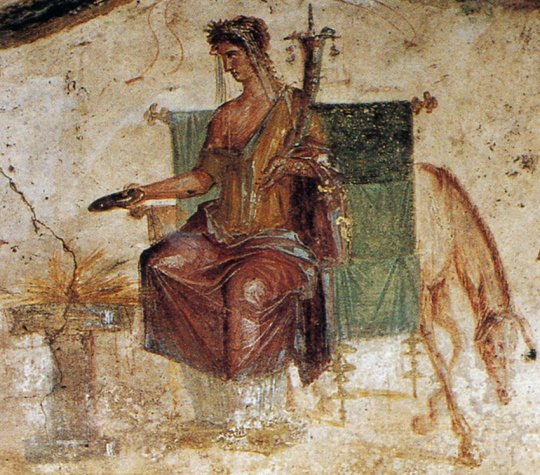
In astrology, Vesta represents focus, devotion, and the sacred flame within. Vesta symbolizes the things we hold most sacred and the commitments that inspire our dedication. It governs areas of life where we channel our energy with purity and purpose, often highlighting where we find inner peace or a sense of duty. Vesta also relates to sexuality and boundaries, reflecting the balance between personal autonomy and the devotion we give to others or to a cause. Its placement in a natal chart reveals where we seek meaning through service, ritual, or inner alignment.
✨Vesta through the Signs ✨
Vesta in Aries Devotion to independence and personal goals. This placement emphasizes the need for self-direction and pioneering spirit. You find sacred purpose through action and courage, often dedicating yourself to personal achievements or leadership roles. Boundaries may be fiercely protected.
Celebrities: Justin Bieber, George Clooney, Freddie Mercury, Emma Watson, David Bowie
Vesta in Taurus Focus on stability, comfort, and material well-being. Here, Vesta’s sacred flame burns in the pursuit of beauty, sensuality, and lasting values. You find meaning in building security, whether through relationships or material success, and tend to show unwavering commitment.
Celebrities: Jennifer Aniston, Princess Diana, Mariah Carey, Kylie Jenner, Sharon Stone
Vesta in Gemini Dedication to knowledge, communication, and intellectual exploration. Vesta in Gemini seeks sacred purpose through curiosity and mental stimulation. You may feel drawn to writing, teaching, or sharing ideas, though maintaining focus can be a challenge in the face of scattered interests.
Celebrities: Steve Jobs, Eminem, Billie Eilish, Amy Winehouse, Cameron Diaz
Vesta in Cancer Devotion to home, family, and emotional security. This placement finds sacred purpose in nurturing others and creating a safe, loving environment. Emotional boundaries are important, as overextending yourself in caregiving can lead to burnout.
Celebrities: Marilyn Monroe, Madonna, Michael Jackson, Rihanna, Jennifer Lopez
Vesta in Leo Focus on self-expression, creativity, and recognition. Vesta in Leo is devoted to living authentically and inspiring others through personal passions. You thrive when your work or pursuits allow you to shine but must guard against neglecting others’ needs for the sake of your own spotlight.
Celebrities: Kim Kardashian, Kanye West, John Lennon, Jay-Z, Adele
Vesta in Virgo Dedication to service, healing, and precision. Vesta in Virgo channels her energy into perfecting systems and helping others, often through detailed or practical work. You find sacred purpose in improving lives and creating order but must be mindful of becoming overly critical or self-sacrificing.
Celebrities: Johnny Depp, Katy Perry, Bill Gates, Chris Evans, Christina Aguilera
Vesta in Libra Devotion to harmony, relationships, and balance. This placement finds sacred purpose in partnership and the pursuit of fairness. You may dedicate yourself to fostering beauty and equality in your environment, but it’s important to maintain your individuality within relationships.
Celebrities: Beyoncé, Selena Gomez, Lana Del Rey, Scarlett Johansson, Kendall Jenner
Vesta in Scorpio Focus on transformation, intimacy, and emotional depth. Vesta in Scorpio seeks sacred purpose in uncovering hidden truths and experiencing profound connections. This placement may drive intense focus and passion, but it also requires care in managing obsessive or possessive tendencies.
Celebrities: Kurt Cobain, Nicole Kidman, Timothée Chalamet, Cristiano Ronaldo, Brigitte Bardot
Vesta in Sagittarius Dedication to exploration, freedom, and higher learning. Vesta in Sagittarius burns brightly in pursuits of adventure, philosophy, or spiritual growth. You find sacred meaning in broadening your horizons and sharing knowledge, though commitment may feel restrictive at times.
Celebrities: Leonardo DiCaprio, Brad Pitt, Miley Cyrus, Britney Spears, Julia Roberts
Vesta in Capricorn Focus on ambition, discipline, and long-term goals. Vesta in Capricorn is devoted to achievement and creating lasting structures, whether in career, family, or society. You find sacred purpose in your work and responsibilities but must balance this with emotional fulfillment.
Celebrities: Elvis Presley, Zayn Malik, Chris Brown, Carla Bruni, Bradley Cooper
Vesta in Aquarius Dedication to innovation, individuality, and humanitarian ideals. Vesta in Aquarius seeks sacred meaning through progressive causes or unconventional paths. You may devote yourself to improving society or championing unique ideas, finding fulfillment in breaking barriers or challenging norms.
Celebrities: Taylor Swift, Elon Musk, Nicki Minaj, Tupac Shakur, Jared Leto
Vesta in Pisces Focus on spirituality, compassion, and creative flow. Vesta in Pisces is devoted to transcendent experiences and emotional connection. You may feel drawn to artistic expression or helping others, finding sacred purpose in unity and forgiveness, but need to guard against over idealization or self-sacrifice.
Celebrities: Angelina Jolie, Lady Gaga, Robert Pattinson, Harry Styles, Ariana Grande
✨Vesta through the Houses✨
Vesta in the 1st House Devotion to self-expression and personal identity. Your focus is on cultivating individuality and embodying your inner fire. Others may see you as highly driven, but you must balance personal pursuits with consideration for others.
Celebrities: Brad Pitt, Kanye West, George Clooney, Nicole Kidman, Mariah Carey
Vesta in the 2nd House Dedication to building security, wealth, and personal values. You may find meaning in managing resources or developing self-worth. This placement highlights the sacred nature of material stability but warns against overattachment to possessions.
Celebrities: Ariana Grande, Megan Fox, Billie Eilish, David Bowie, Adele
Vesta in the 3rd House Focus on communication, learning, and sharing ideas. You are deeply devoted to intellectual pursuits and may channel your energy into writing, teaching, or connecting with others. Maintaining clear mental boundaries is key to avoiding burnout.
Celebrities: Taylor Swift, Johnny Depp, Leonardo DiCaprio, Britney Spears, Selena Gomez
Vesta in the 4th House Sacred devotion to home, family, and emotional roots. This placement suggests a strong focus on creating a sanctuary or preserving family traditions. You may feel called to nurture others but should guard against losing yourself in family obligations.
Celebrities: Rihanna, Justin Bieber, Princess Diana, Shakira, Kylie Jenner
Vesta in the 5th House Dedication to creativity, romance, and self-expression. Your sacred purpose may involve artistic pursuits, personal passions, or inspiring others through joy and play. Balance is needed to ensure that personal fulfillment doesn’t overshadow responsibilities.
Celebrities: Michael Jackson, Harry Styles, John Lennon, Princess Catherine, Chris Brown
Vesta in the 6th House Devotion to service, work, and well-being. This placement emphasizes commitment to daily routines, health, and helping others. You find purpose in making life more efficient or productive but must avoid overworking or neglecting your own needs.
Celebrities: Keanu Reeves, Julia Roberts, Kendall Jenner, Jennifer Lawrence, Elizabeth II
Vesta in the 7th House Focus on relationships, partnerships, and balance. You are devoted to building meaningful connections and may find sacred purpose in helping others achieve harmony. However, it’s important to avoid losing your identity in your partnerships.
Celebrities: Miley Cyrus, Elon Musk, Eminem, Jennifer Aniston, Emma Watson
Vesta in the 8th House Dedication to transformation, intimacy, and shared resources. This placement suggests a deep focus on uncovering hidden truths and navigating life’s mysteries. You may find sacred purpose in healing, exploring taboo topics, or managing power dynamics.
Celebrities: Prince Harry, Drake, Catherine Zeta-Jones, Matt Damon, Kendrick Lamar
Vesta in the 9th House Sacred devotion to exploration, spirituality, and higher knowledge. You are drawn to pursuits involving travel, philosophy, or teaching. This placement highlights a need for freedom to seek truth but warns against being overly dogmatic or restless.
Celebrities: Angelina Jolie, Jennifer Lopez, Kim Kardashian, Steve Jobs, Sharon Tate
Vesta in the 10th House Focus on career, public life, and long-term goals. You are highly devoted to achieving success and may find purpose in contributing to society or building a lasting legacy. Work-life balance is crucial to avoid overidentifying with your career.
Celebrities: Lady Gaga, Scarlett Johansson, Cristiano Ronaldo, Natalie Portman, Zayn Malik
Vesta in the 11th House Dedication to community, friendships, and progressive causes. You find meaning in working for collective goals or championing innovative ideas. This placement encourages collaboration but warns against losing personal focus in group dynamics.
Celebrities: Madonna, Katy Perry, Cameron Diaz, David Beckham, Kristen Stewart
Vesta in the 12th House Focus on spirituality, inner growth, and hidden dimensions of life. Your sacred purpose may involve helping others, exploring dreams, or delving into the subconscious. This placement highlights compassion and transcendence but requires boundaries to avoid self-sacrifice.
Celebrities: Marilyn Monroe, Beyoncé, Robert Pattinson, Lana Del Rey, Heath Ledger
I thank you all for reading my post on Vesta, and I would like to know if any of it resonated with you!
Sending love, Xx
#astrology#astrology interpretation#asteroid#asteroid astrology#vesta#celebrity astrology#myth#mythology#roman mythology
32 notes
·
View notes
Text
Analysis of some details in Polar Town
Specifically locations 1, 3 and 5 of the UTTU part of Rayashki event. There are not a lot of screenshots - if you need some, I can DM them. Thanks to @vingler-mirror for the screenshots of Civic Square descriptions and the final Spotlight Chronicle
1 - Rayashki Elementary
Big-Eared Monkey and Mr. Crocodile - a reference to Cheburashka and Gena the Crocodile in form of August’s nicknames. The song Vila often sings might be based on The Blue Wagon from the 70s cartoon.
The collage shows not a bayan accordion but another accordion type called “гармонь” (garmon’) in Russian


2 - Hotel
Honestly, I believe Windsong enthusiasts will analyse the texts better than I could have









3 - New Mine
We’re getting more lore about the critters based on Inuit mythology. Kikituks are said to be evolved from shamanic statues into amphibious creatures and preferring mammal meat over fish nowadays. Ijiraks are said to be former people trapped into the boundary between life and death for wandering too far into the wild. Qiqirns are described as malevolent canines that wander aimlessly for eternity (it can be connected to their role in shamanism).
Information about the background character because I've got attached to him: the Rayashki guest arrived here following an Irish merchant ship. He’s a miner from Greenland expedition team with a bushy red beard and bear belly. He has a crude front but is a symphony enthusiast and likes literature - the temporary library helped him to bond with his teammates over literature without feeling weird. Also he has a little daughter. Pushkin’s Ode to Liberty that he read is a historically interesting piece where the author supports a political activist exiled to Siberia (the ode gets Pushkin exiled too but to a more gentle place)
4 - Swimming Pool
The descriptions go in chronological order of mermaid history.
@sleeplesssmol have copied Rusalka Spotlight Chronicle in their post here!






5 - Port
Among the stage descriptions, there are two interesting objects described:
A preserved seabird, seemenly for the migrated critters.
Rayashki Cheese - is said to be made out of milk from northern tundra. The cheese’s wrap design is based on Friendship cheese made by KARAT. The peculiar detail about it is that the only KARAT factory is in Moscow

Rayashki seemly participates in barter with the ships.
Cultural Palace - is a common name for major club-houses




6 - Civic Square








The polar bear statue was made after one of the meetings and now is taken care of as a symbol of the community
52 notes
·
View notes
Text
In the American civic religion, the traditional role of the church came to be played by, appropriately enough, a corporation. As formal religion waned, the Disney corporation took the reins of hegemonic cultural development, preservation, and transmission.
Pilgrimages to Disneyland and Disneyworld replaced similar holy trips to Rome, Jerusalem, or Mecca in other faiths. The poor would save for years in hopes that they could afford a once-in-a-lifetime pilgrimage. The middle class would go as they could afford. The wealthy would either make a spectacle of an annual pilgrimage or of announcing themselves above such proletarian religious observances.
Like other religious institutions, Disney came to subsume competing mythologies, most often through purchase, as might be expected of a corporation. "Super heroes," a popular American form of demigod mythology, came to be owned by Disney, not just renamed as saints or called aspects of an existing deity.
Like all religions, there were schisms. Take the Pixar sect, officially a part of Disney but usually operating semi-independently, depending on whether the current leadership was promoting conformity or diversity. Pixar is perhaps best known for its paean to the American institution of Cars, a trilogy of stories in which the cars themselves have outlived humanity and formed their own nation on the highways that so long divided Americans from each other.
Pixar's iconography was one of rebellion from the church-corporation that had purchased it. Whenever it could get away with it, Pixar films started with a panopticon image of a self-powered spotlight, crushing the self ("I") from Pixar itself before looking directly at the viewer. The rebellion at Pixar showed this tragic destruction of "I" before showing that "you" are next, before performing their prescribed role of celebrating the culture and the corporation, a mix of the prescribed and the proscribed.
21 notes
·
View notes
Text



Symbols on ancient Greek coins
Ancient Greek coins often featured unique symbols or emblems that represented the city-state that minted them. These symbols were an early form of coinage emblem or "badge" that promoted the prestige of the city.
Some common symbols :
- Owls on Athenian coins, representing the city's patron goddess Athena.
- Pegasus on Corinthian coins, representing the mythological winged horse tamed by the hero Bellerophon.
- Bees on coins of Ephesus, representing the goddess Artemis who was associated with the city.
- Lions on coins of Miletus, a common symbol for the city.
- Roses on coins of Rhodes, representing the island's famous flower.
- Celery on coins of Selinunte, depicting the local plant.
These symbols were more than just decoration - they served to identify the issuing authority and promote the identity of the city-state. Coins were an important symbol of civic pride and power in the ancient Greek world. The variety of symbols used reflects the diversity of Greek city-states and their local mythologies and iconography. #archaeology #history #ancient #art #alsadeekalsadouk #ancienthistory #travel #archaeological #rome #italy #museum #roma #heritage #greek #arthistory #culture #antiquity
#4thcentury #photography #tetradrachm #greekcoin #greekarcheology #greekancientcoins #stater #الصديق_الصدوق
#Greek_mythology
#history#photography#greek coins#sidon saida tyre beirut phoenician الصديق_الصدوق#culture#travel#palestrina#archaeology
27 notes
·
View notes
Text
Happy Audio Drama Sunday! I am currently so so sick. Audio drama is a great comfort. Love my stories ❤️
🐱Kakos Industries is always good, and this episode was a pretty typical episode of it, but I just need you all to understand how much i love Kakos Industries. If you need a new lowkey comedy podcast, I can’t recommend it enough.
📱 @worldgonewrongpod never misses. This episode was about bureaucracy, the real horror, and was equal parts funny and infuriating, but it hit so hard on a real truth, the way real people’s everyday lives are affected by sloppy civic design. This is the first week of Disability Pride Month, and I can’t help but think about how police brutality disproportionally affects disabled folks—how much worse would it be in this world affected by aliens and mythology and monsters? People already associate disability with evil. It’s a good reminder.
👼 Literally what do you even say about the Silt Verses? I am amazed in this episode at the parallels between Rane and Faulkner on the one hand and, way back in season two (maybe?), Elgin and Paige on the other hand. They approached the weird strained relationship they had with honestly and now they are working together; Rane and Faulkner were backstabbing and power-hungry from the start and now? Well. This is all to say nothing about the freakin sound design this episode. Can't wait to see how this story ends.
✅ The Deposition is a new show from Hug House, a dramatized nonfiction podcast where actors like Josh Rubino (Kingmaker Histories, Valence, etc) read, word-for-word, the record of a deposition of Famed Internet Idiot Elon Musk. It is. INCREDIBLE. It’s hard to even describe it. Please listen to it, I need to talk to someone about it.
🤖 HELLO, LISTEN TO ASK YOUR FATHER. I just got to episode seven and no spoilers. But I knew it, I frikkin knew it.
No Hannah news this week, I’m too tired, I’m gonna nap. Go listen to Inn Between and make me some fan art to speed my recovery, i love you, have a good week
#audio drama sunday#audio drama#audio fiction#fiction podcast#kakos industries#world gone wrong#the silt verses#the deposition#ask your father
22 notes
·
View notes
Text


Yeah it's like. Well I guess this is a situation that is handled pretty well by my heuristic of "like half of what people say is pure social posturing of one kind or another, it's a speech act with some intended interpersonal effect but it has basically no relation at all to what they actually literally believe about the world." And this is doubly true for political speech, so that "I support universal human rights" might actually mean "I identify as team blue" or alternately "I am emotionally invested in American civic mythology" or something like that, but only in unusually reflective people means something recognizably similar to its denotative content.
Maybe this is an overly pessimistic perspective but it has served me fairly well thus far.
48 notes
·
View notes
Note
The mythologizing of George Washington honestly kind of makes sense because he was one of if not the most successful revolutionary leaders ever. Won the war, bloodlessly put down a rebellion, voluntarily gave up power. Compare him to Simon Bolívar, who spent the last years of his life watching all his dreams turn to shit before dying in exile.
Oh tbc my stance has nothing to do with the merits of Washington himself. I just find that sort of civic cult an affront to...I don't know, it's deeper than just aesthetics, civic dignity, maybe?
Leaders and institutions can be useful and respected, but it's offensive to demand or expect they be revered. The highest esteem a ruler should ever be held in is affectionate contempt, anything beyond is degrading to those under their power.
Besides, on ne peut point régner innocemment. It's dangerous to get into the habit of looking up to those who are invariably monsters.
#reply#anon#I am congenitally opposed to both ritual and heroes/idols as rule#so y'know decide how seriously you wanna take this#it's 2am and I'm rambling
33 notes
·
View notes
Text
Muslim pupils who expressed outrage after their teacher presented a Renaissance painting of nude women in class will be disciplined, France’s education minister has said.
A French teacher at the multicultural Jacques-Cartier college showed students the painting Diana and Actaeon by the Italian artist Giuseppe Cesari, which portrays a Greek mythology story in which the hunter Actaeon sees the goddess Diana and her nymphs bathing.
The work, which depicts a naked Diana and four female companions, is held at the Louvre museum in Paris.
Sophie Vénétitay, secretary general of the Snes-FSU secondary school teachers’ union, said: “During a French class, a colleague showed a 17th-century painting that showed naked women.”
“Some students averted their gaze, felt offended, said they were shocked,” said Ms Vénétitay, adding that “some also alleged the teacher made racist comments” during a class discussion.
A pupil’s parent sent an email to the school director saying that his son was prevented from speaking during that discussion and that he would file a complaint.
“We know well that methods like that can lead to a tragedy,” Ms Vénétitay told BFMTV news. “We saw it in the murder of Samuel Paty. Our colleagues feel threatened and in danger.” Teachers at the Issou school said that pupils admitted lying about events in their art class but that the damage had been done. “We’re dealing with vindictive parents who prefer to believe their children than us,” they said. Gabriel Attal, the education minister, visited the school in person on Monday and later said that a disciplinary procedure would be launched “against the students who are responsible for this situation and who have also admitted the facts”.
A team would also be deployed to the school to ensure it adhered to the “values of the republic”, he said.
Staff at the Jacques-Cartier middle school in Issou, west of Paris, refused to work on Monday, saying they feared for their safety given the recent murders of two teachers by jihadi terrorists.
Dominique Bernard was stabbed to death by a Muslim man in his school’s playground in the northern town of Arras in October.
In 2020 a civics teacher, Samuel Paty was stabbed and beheaded by a terrorist in Conflans-Sainte-Honorine, 12 miles from Issou, after he showed his pupils a caricature of Mohammed in a class on free speech.
In an email sent to parents on Friday, teachers said they were exercising their right to stay away from classrooms over the “particularly difficult situation” and “an increase in cases of violence” as their daily reality.
Deteriorating discipline at the school
The school’s head teacher recently asked the education ministry for more staff and resources to deal with deteriorating discipline at the school, saying that fights and death threats and threats of rape had become common among pupils.
“We feel we are clearly in danger. We are supported by our direct superiors but not from higher up. This is a real call for help,” said one teacher.
Last week a Paris court convicted six teenagers over their role in events that led to the beheading of Mr Paty, who was their teacher at the middle school in Conflans when he was killed by Abdoullakh Anzorov, an 18-year-old of Chechen origin.
In another sign of school-religion tensions, the state this week said it would withdraw funding for the country’s biggest state-subsidised Muslim high school. In its teaching of Muslim ethics, the Averroes school, in Lille, was found to be violating French republican values.
On Tuesday, Jordan Bardella, leader of the hard-Right National Rally party, warned that “freedom of expression is under threat in France from an all-conquering political Islam that is imposing on our society its laws, its way of life and its prohibitions”.
39 notes
·
View notes